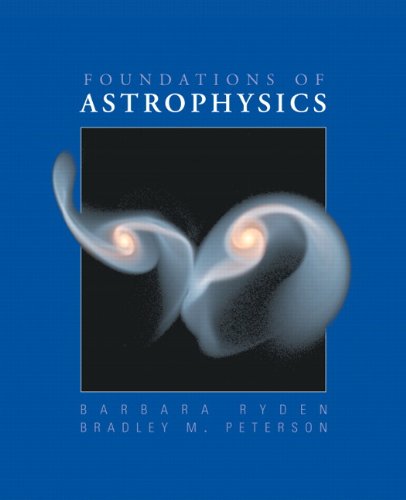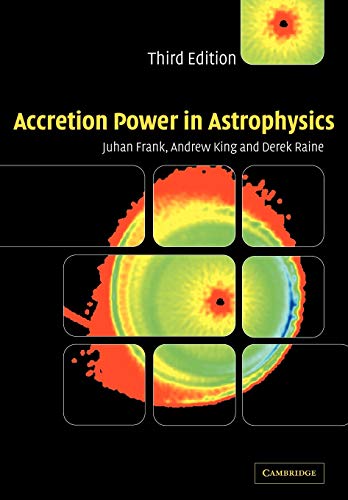(Part 2) Top products from r/astrophysics
We found 20 product mentions on r/astrophysics. We ranked the 42 resulting products by number of redditors who mentioned them. Here are the products ranked 21-40. You can also go back to the previous section.
22. A Brief on Tensor Analysis (Undergraduate Texts in Mathematics)
Sentiment score: 0
Number of reviews: 1
 Show Reddit reviews
Show Reddit reviews23. Introduction to Quantum Mechanics (2nd Edition)
Sentiment score: 1
Number of reviews: 1
 Show Reddit reviews
Show Reddit reviews26. the quantum universe: everything that can happen does happen. brian cox & jeff forshaw
Sentiment score: 1
Number of reviews: 1
PENGUIN GROUP
 Show Reddit reviews
Show Reddit reviews27. Storms from the Sun: The Emerging Science of Space Weather
Sentiment score: 1
Number of reviews: 1
 Show Reddit reviews
Show Reddit reviews29. Physics for Scientists and Engineers: A Strategic Approach, Standard Edition (Chs. 1-36) (3rd Edition)
Sentiment score: 1
Number of reviews: 1
Used Book in Good Condition
 Show Reddit reviews
Show Reddit reviews30. University Physics with Modern Physics (14th Edition)
Sentiment score: 1
Number of reviews: 1
NOTE: You are purchasing a standalone product; MasteringPhysics does not come packaged with this content. If you would like to purchase both the physical text and MasteringPhysics search for ISBN-10: 0321982584/ ISBN-13: 9780321982582. That package includes ISBN-10: 0321973615/ISBN-13: 9780321973610...
 Show Reddit reviews
Show Reddit reviews31. College Algebra (10th Edition)
Sentiment score: 1
Number of reviews: 1
College Algebra
 Show Reddit reviews
Show Reddit reviews32. Astronomy: Journey To The Cosmic Frontier
Sentiment score: 1
Number of reviews: 1
 Show Reddit reviews
Show Reddit reviews33. Interferometry and Synthesis in Radio Astronomy
Sentiment score: 0
Number of reviews: 1
 Show Reddit reviews
Show Reddit reviews34. Cataclysmic Variable Stars (Cambridge Astrophysics)
Sentiment score: 1
Number of reviews: 1
Used Book in Good Condition
 Show Reddit reviews
Show Reddit reviews35. An Introduction to the Solar System
Sentiment score: 1
Number of reviews: 1
Used Book in Good Condition
 Show Reddit reviews
Show Reddit reviews36. An Introduction to the Sun and Stars
Sentiment score: 1
Number of reviews: 1
Used Book in Good Condition
 Show Reddit reviews
Show Reddit reviews37. An Introduction to Galaxies and Cosmology
Sentiment score: 1
Number of reviews: 1
Used Book in Good Condition
 Show Reddit reviews
Show Reddit reviews38. Physical Foundations of Cosmology
Sentiment score: 1
Number of reviews: 1
Used Book in Good Condition
 Show Reddit reviews
Show Reddit reviews





"Heliophysics" is a recently coined term to encompass the Sun-Heliosphere system. Only one textbook set exists yet; it is a three-book series based on a series of NASA-sponsored summer schools. The related field of Space Weather has a few textbooks -- Mark Moldwin's textbook on space weather is pretty good. The other end of the scale (in the solar corona itself) is still very exciting. Marcus Aschwanden's "Physics of the Solar Corona" is a phenomenal introduction that is surprisingly comprehensive, readable, and clear.
If you're looking for a popular overview of the subject, Sten Odenwald's "The 23rd Cycle" is a nice one to read -- it's rather like what John McPhee (I'm a big fan) would have written if he wrote about space. Carlowicz & Lopez' "Storms from the Sun" is also nice and about the same level.
If you want great detail, I'd go for Moldwin and for Aschwanden. I think that Aschwanden's book is available for free download (at least it used to be) on his website; it's about $100 in hardcover from Amazon.
Are you looking for graduate school recommendations? University of Colorado at Boulder ("CU Boulder") is excellent, as is Montana State University (in Bozeman). Harvard, Stanford, George Mason University, the New Jersey Institute of Technology, the University of Hawaii, and University of Alabama at Huntsville are all terrific choices. Remember that, for graduate school, you're looking for an advisor (not a school, necessarily) that is a good match for you -- you really must go visit each school you consider.
If you want a post-graduate level of understanding, it will be hard to learn the math past calculus that you will need with no instruction. Maybe impossible unless you are very gifted or studious. You'll need to learn more advanced math (taylor expansions, more advanced integration methods not always taught in calc I, multi-variable calculus, ordinary differential equations and linear algebra for starters). A layperson's understanding wouldn't require that much (maybe reading Sagan and Co. would be enough?), but it sounds like you aren't content with that. Maybe it would be good to start reading some journal articles and seeing what you can glean from them (introductions mostly), especially reviews of subjects you find interesting. If those are opaque, check a local university library for textbooks like Introduction to Modern Astrophysics, Padmanabhan's astrophysics I-III, Binney and Tremaine and things like that. There are text books more focused on specific subjects as well, but that's more a matter of personal interest. For me, Lewin and van der Klis is good, and so is Accretion Power in Astrophysics and the "CV Bible." You might notice Cambridge Astrophysics publishes quite a lot of quality astrophysics textbooks.
None of those are going to be legible without the math, though. There's not really anything between the "popular science" and "so you're taking a graduate course in astrophysics..." level texts that I've seen.
I'm working on my BS in Physics with my Astronomy minor done and here's my 2 cents. If you love the hobby enough, the math and physics shouldn't bother you. On the same point, after intro courses in both Physics and Astronomy, it gets very math-heavy. If you have the determination and love for the subject, it's very doable :)
My Astronomy textbook that I used is Foundations of Astrophysics.
Check it out and see if you can find a site that previews the book. Good luck!
An Introduction to Modern Astrophysics is an excellent and easy to read book:
https://www.amazon.com/dp/1108422160/ref=cm_sw_r_cp_apa_omrWBbDYB9MN3
It's commonly used for introductory Astrophysics courses. If you don't have a basic understanding of Calculus it won't make much sense so, if you really want to properly understand the subject, first study basic Calculus. A good introductory Calculus book would be this one:
https://www.amazon.com/dp/1285740629/ref=cm_sw_r_cp_apa_JdsWBbH1KXPAN.
You're also going to want a basic understanding of Physics so one more for that:
University Physics with Modern Physics (14th Edition)
https://www.amazon.com/dp/0321973615/ref=cm_sw_r_cp_apa_LfsWBbHJ83MT6
Those three books together should give you a basic understanding of Astrophysics and put your feet solidly on the road to further understanding. Read the Calculus book first (at least the first half of it or so) and then the Physics book. Then you'll be ready to dive into Carroll and Ostlie's book!
If you don't want to go quite that deep and you just want a really basic overview of the subject, you might consider finding Hawking's "A Briefer History of Time" or watching the PBS SpaceTime series in YouTube.
Edit: If the Calculus book is still a little unclear, your issue probably lies in Algebra. In that case, read this book before any of the others:
College Algebra (10th Edition)
https://www.amazon.com/dp/0321979478/ref=cm_sw_r_cp_apa_MqsWBbR985C30
Good luck on your journey! Give yourself at least a year or two to get through all of them and don't forget to work the problems!
Oh - download Kerbal Space Program and play it for a while. Trust me on this; you'll develop a second sense of basic orbital mechanics ;)
We're not even sure the constants are constant. It's entirely possible they do change in some complicated relationship on levels too large, too small, too fast or too slow for us to notice 'easily'. I know that dodges your question, but it's one hell of a question and answering it directly would be a marked step forward in our understanding of the universe.
Like chip said, the math is just a 'best fit' solution to the events we observe. If you've got the free time you could crack open this book and try moving things around and see what your new maths describe.
I hadn't even passed algebra when I graduated high school though so if you're in the same boat I was in then this book (specifically the later chapters) might give you a better perspective.
If you want to read some great books on astrophysics and quantum physics, I recommend the books written by Professors Brian Cox and Jeff Forshaw: Universal and The Quantum Universe
They are brilliant books and deliberately shy away from using any complex mathematics, explaining in detail all of the maths that is used.
I took an intro astro course and they made us use this book. Just an earlier version, sure the last one has some better pictures and maybe explains stuff better/differently, but I picked it up for 5 bucks and it is one of my favorite textbooks ever/so far.
The big bang is not usually simulated if you mean a computers simulation. The reason is you need a code that does high energy quark-gluon plasma calculations inside of a general-relativistic framework that models how through cooling this plasma gives rise to stable atoms.
Though in theory it's possible, writing a code that could model each item correctly would be very difficult.
However, using analytical calculations the basic results of the above scenario is not that bad. That components that you add are metric for general relativity, the spectral index for inflation, the Lagrangian for the high energy particles involved, etc...
If you would like to see how these kinds of calculations are done check out this textbook from a library. See especially the chapters on the "very early universe", "inflation' and gravitational instabilities in GR.
Cambridge University Press has an excellent series of astronomy books that are written at a undergraduate level. For an amateur as myself they really hit the spot for self-study. Overall easy to read but still quite detailed with a few challanging parts.
An introduction to Galaxies and cosmology by Jones & Lambourne
An introduction to the Sun and stars by Green & Jones
An introduction to the Solar system by McBride & Gilmour
When I was young and impatient to learn the math underlying GR, I enjoyed this book:
A Brief on Tensor Analysis (Undergraduate Texts in Mathematics) https://www.amazon.com/dp/038794088X
As well as the above book I used Burke & Smith as my introduction to RA, then used Interferometry and Synthesis a lot later on
Here